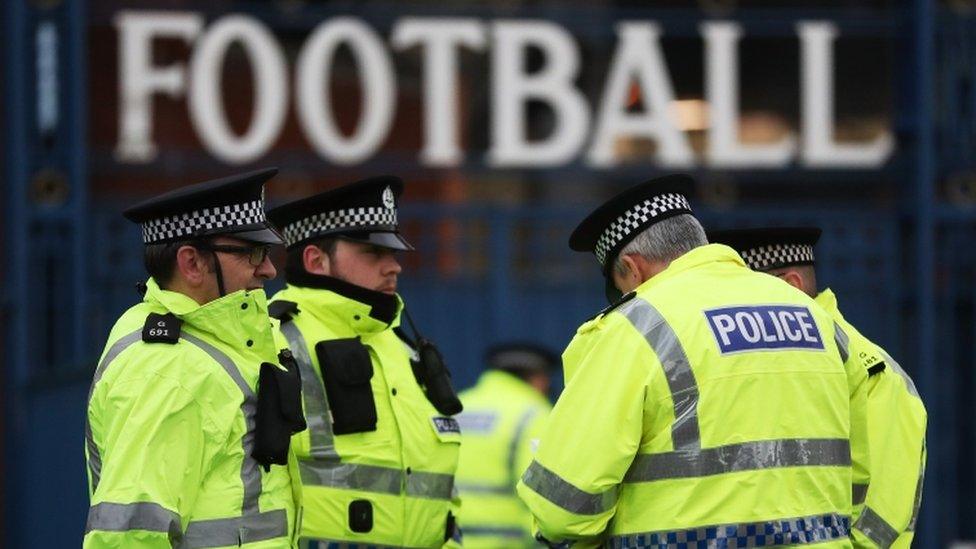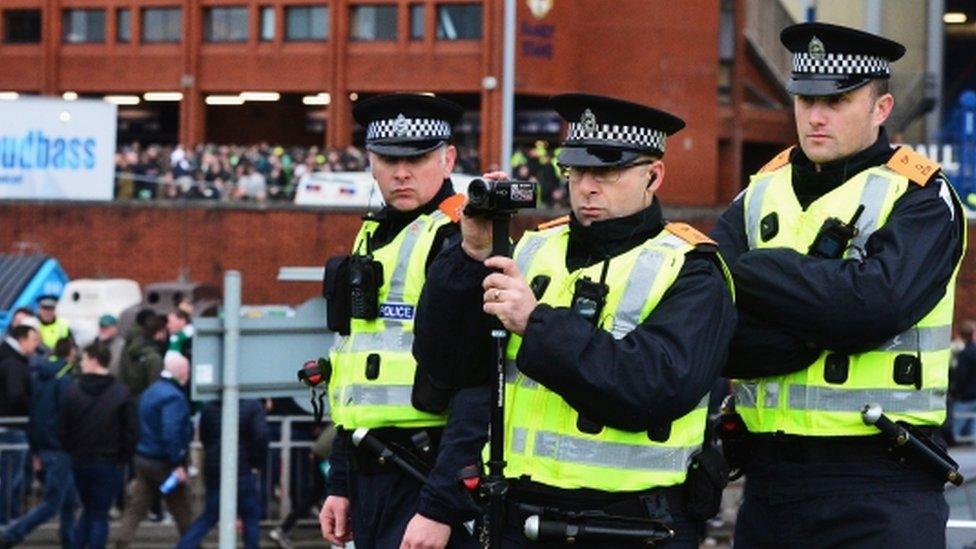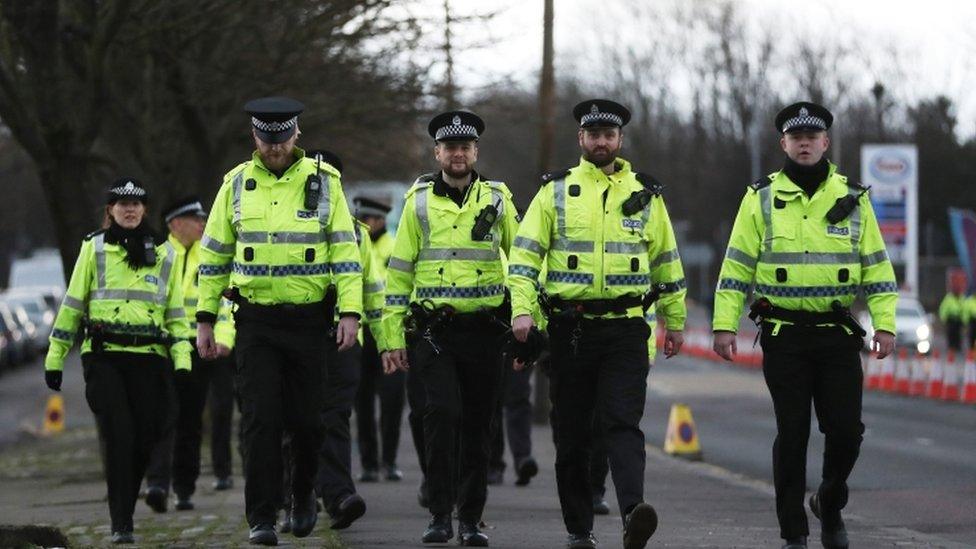Hundreds of views on Football Act repeal bid to be studied
- Published

The Football Act has been in operation since 2012
Hundreds of views on whether Scotland's Offensive Behaviour at Football Act should be repealed are to be considered by MSPs.
The legislation came into force in 2012 after the SNP used its then-majority to pass it, but a majority of MSPs now back a repeal of the law.
Labour MSP James Kelly has tabled a member's bill, external aimed at repeal, which is being studied by the justice committee.
More than 200 submissions from people and organisations were sent in.
Football fans' organisations and legal groups including the Law Society of Scotland raised concerns about the legislation in the consultation, while others spoke out against repeal.
The Offensive Behaviour at Football and Threatening Communications (Scotland) Act was voted through in 2011, without any support from opposition parties. It aims to tackle sectarian behaviour around football matches and online, but opponents argue it is unnecessary in light of existing laws and unfairly targets football fans.
In November 2016, the Conservatives, Labour, the Greens and the Lib Dems - who all campaigned that year on Holyrood manifestos pledging opposition to the Act - united to urge the government to repeal.
Ministers argue that opposition groups have not put forward viable alternatives, and insist that repealing the bill would send the wrong message about the importance of tackling sectarianism.
'Caused confusion'
More than 200 submissions from individuals and organisations were received by the justice committee, of which more than three quarters were in favour of repeal.
The Law Society of Scotland said it had "commended the intent of the bill to address the serious issues" involved, but said they "continue to be concerned about aspects of the Act".
They said that offensive behaviour covered by the Act "is likely to be caught by the substantive criminal law" already in existence, and said all 287 charges brought under Section One of the legislation in 2015-16 "could have been prosecuted under pre-existing legislation". On this basis, they said the legislation "has not been fundamental to tackling sectarianism".
The submission, external also said that repeal would not "leave a gap in the criminal law", and said the Act may in fact "have caused some confusion with particular reference to what type of behaviour is now considered offensive and unacceptable" - something that could lead to cases in the appeal courts seeking clarification.

The law was intended to discourage overtly sectarian behaviour in and around Scottish football matches
Supporters Direct Scotland, recognised as the lead football fans' group by the game's managing bodies in Scotland, formally agreed with the proposal to repeal the bill, citing their own surveys of supporters - the majority of which backed repeal.
Their submission, external said there were "sufficient provisions within criminal law to prosecute offensive behaviour related to football" without the Act, arguing that it "targets and singles out football supporters".
The Glasgow Bar Association, meanwhile, argued, external that the legislation was poorly written, saying the definition of offensive behaviour was "unclear and broad", which had led to difficulties in implementation for the police and lawyers.
And civil liberties organisation Liberty said, external the Act "poses a threat to human rights", saying the provisions set out "extend the reach of the criminal law too far into the realm of free expression without offering meaningful additional protection".
'Unacceptable gap'
However, others wrote in support of the legislation, or at least to oppose repealing it.
Victim Support Scotland agreed that "laws should be rational and enforceable", but they said there should be no repeal of the Act "unless there is a viable alternative to support victims of threatening communication and religious prejudice".
They said, external repeal of Section Six in particular - the section dealing with threatening communications - would "leave an unacceptable gap in Scottish legislative protection for victims of religious prejudice".
Glasgow Caledonian University law lecturer Andrew Tickell wrote in his submission, external that while he retained "significant concerns" about the legislation, with a review of hate crime legislation ongoing, proposals to repeal it would be "to take a sledgehammer to a task designed for the scalpel".
The Church of Scotland said, external it would be "wise to await the recommendations" of the review, led by Lord Bracadale. They also voiced concern that "repealing the Act without replacement would be a symbol that our elected representatives do not think that behaving offensively or sending threatening communications is problematic".
They added: "At a time of rising levels of anti-Semitism and Islamophobia, and where sectarianism remains a reality of life in Scotland, the wider implications for repeal should be taken into account."
And the Scottish Council of Jewish Communities said, external that repeal "would send exactly the wrong message", calling instead for the legislation to be extended, so that it relates to more areas than just football.
- Published22 June 2017

- Published26 January 2017

- Published2 November 2016
